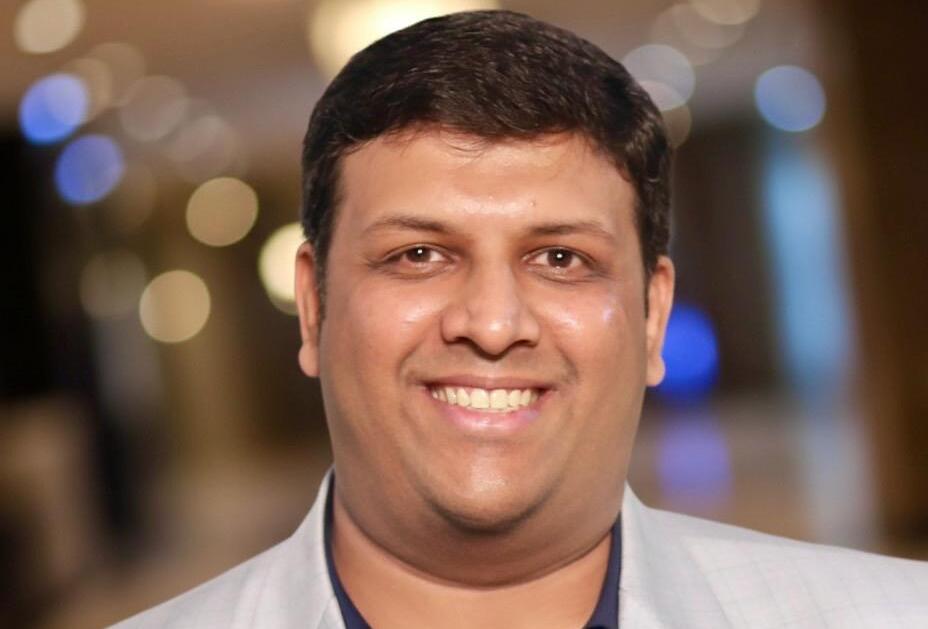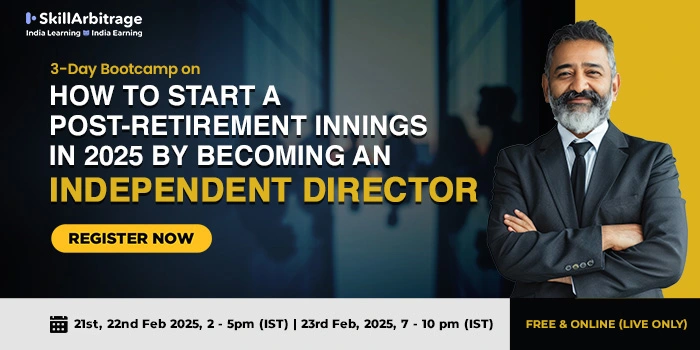This interview has been published by Anshi Mudgal and The SuperLawyer Team
What initially inspired you to pursue a career in law? Was it a personal passion or did your father’s legacy in the legal field play a defining role in shaping your decision?
Two reasons I suppose. The first being that my father was a lawyer as well. Though I didn’t know much in my younger years about the profession, just seeing him in the blazer and robe felt classy and had a certain aura. The second was that I didn’t quite like maths and science as subjects during my schooling days so much so that after Class 10 I immediately switched to Humanities for Class 11 and 12. On a lighter note, they say ‘karma is a boomerang’. I managed to avoid anything to do with Maths and Science for a good 7 years post Class 10 but both of them resurfaced once I stepped into my legal career and have been part of my journey since courtesy the matters that I handle.
You took over Shiva & Co. Advocates in 2008 at just 23. How did you adapt to the challenges of leading a full-fledged law firm so early in your career, and what were the key lessons from that transition?
Circumstances forced me to take over the firm at the age of 23. I had just completed my LL.B from University Law College, Bengaluru in mid-2007 and was on track to do my Masters in Law having secured an offer both in London School of Economics and National University Singapore. Unfortunately, I lost my father in March 2008. Shiva & Co. Advocates was my father’s baby which he had started in the year 1988 and I did not want to see it shut down because he was no more, hence I immediately took over the reins of the firm. The challenges were aplenty since I was a complete rookie with an elementary knowledge of the law and no practical experience. My father, due to his sheer hardwork and dedication had become a successful and well-known lawyer and had built up a sizable practice and the nature of matters that he worked on towards his last few years involved high value and high stakes. My first few days after taking over the firm were spent in reaching out to Clients and asking them if they wanted to continue with the firm or wanted the briefs to be returned. The exercise rendered me almost briefless since Clients understandably did not want to entrust such high value and high stake matters to a rookie Counsel. My father’s junior colleagues at the chamber had moved on post his demise. The only staff I was left with was my father’s chauffeur, court clerk and stenographer. It took some time but slowly, brick by brick, with the able assistance of my support staff, we put things together. I was fortunate enough that in a couple of months, two clients of my father, one an individual and another a company in the travel sector gave me my first briefs, one being a landlord-tenant dispute and the other a consumer matter. The faith and encouragement that they reposed in me helped me find my footing and since then there has been no looking back. One thing that I never gave up on even during those early days when I was brief less, visiting Courts and reading up on the law. In terms of lessons or learnings, I would only say that what helped me during those early years were certain key aspects – mental fortitude to run the firm, come what may, a thirst to succeed in the profession, constant reading of the law and observing matters across various Courts. I always tell my junior colleagues that for a Lawyer, his/her eyes, ears and tongue are the most important sense organs. Eyes to observe, ears to hear and tongue to voice out an appropriate response after the brain has processed all the information and the right combination of this is what creates magic in Court.
Your firm handles a broad spectrum of work, from civil and criminal litigation to real estate and corporate matters. How do you manage and balance these diverse practice areas while maintaining quality and consistency across them?
It comes down to putting in place an effective strategy. Over the years, I have had the assistance of my junior colleagues at the office who have ably assisted me in my matters. The majority of them joined right out of college and have left the firm after being part of it for a considerable amount of time and are doing well for themselves. They are spread across litigation, corporate, in-house and one of them is even a Judge in the Trial Court. The moment a brief is received, a short note is prepared on the facts of the case and the issues involved by my colleagues which is followed by a preliminary discussion post which tasks are assigned. My junior colleagues, over the years, have due to their efforts, handled various stages of a case on their own be it cross-examination, final arguments or arguments on interim reliefs and I am extremely happy to see their progress. As long as the work is process driven and each member of the firm recognises his/her roles and responsibilities, quality and consistency can be maintained effectively.
You completed the 40-hour Mediator Training Workshop jointly conducted by OCMC, NLSIU, and ICADR. How has this training influenced your approach to dispute resolution and client management in litigation and ADR matters?
Honestly, I did the course only because Mediation was a buzzword then. We had a good set of trainers who invested time over two days to teach us all the ins and outs of Mediation. The workshop helped in understanding the essence and effectiveness of the process if done right away. In addition, a key takeaway for me personally was that it helped in shaking off some rusty bits in my approach towards client meetings and helped in having a more nuanced approach towards the same. Considering the explosion of litigation and pendency in the Courts, Mediation is certainly a viable tool that requires a bit more than a nudge in order to make it a preferred dispute resolution mechanism. The Mediation Act and the setting up of the Mediation Association of India are steps in the right direction.
You have been actively involved in arbitration and other ADR mechanisms. How do you perceive the growing importance of ADR in India’s legal ecosystem, and what role does it play in your firm’s overall strategy?
Arbitration as a dispute resolution mechanism has evolved over the years. Despite periodic amendments to the law, there is still a substantial portion of the process and provisions in the Act where there is Court intervention. Some developments such as fixing a timeframe for disposal, restricting the scope for appeal etc. have helped in speeding the process to some extent, however India as a destination for Arbitration still has a long way to go. There is definitely hope though. I recently attended an Arbitration conference in Mumbai and was pleasantly surprised at the interest shown by arbitrators and academicians from outside India regarding developments related to Arbitration Law in India. Online Dispute Resolution has also taken off in a big way in India and we are seeing multiple ODR platforms opening up. The impetus for Arbitration can also be seen as recent as this month when the Chief Minister of Andhra Pradesh has announced the setting up of an International Arbitration Center in Vishakapatnam. On the flipside, Arbitration is still considered as a closed door club where only the rich can have proper access to the process by engaging the top lawyers in the country. This is due to the fact that the costs involved are steep and out of reach for most small and medium businesses who as a result continue to prefer the traditional litigation route despite its anomalies. The MSME Act and the Commercial Courts Act have provided some succour to these small and medium businesses with regard to speedy disposal of disputes. ADR as mechanisms are definitely required considering the docket explosion in Courts however they do need refinement on some key aspects.
Clearing the Advocate-on-Record examination is a significant professional achievement. Could you share your preparation journey, the challenges faced, and how this qualification has impacted your practice at the Supreme Court?
As is with a few events that have occurred in my life, taking up the AoR exam was on a whim since a friend of mine had also decided to take it up. Despite having a decent practice in Bangalore in all of those years, I had never set foot in the Supreme Court for any matter and it irked me to an extent. I blame myself partly for having become too comfortable with my work in Bangalore to think of expanding my horizons. The Covid-19 pandemic was the time that curiosity got the better of me and since there was not much else to do, I decided to take a crack at the exams. Considering the mandatory 1 year training had to be done during the time of the pandemic, it involved a lot of self-study and listening to lectures online. To an extent, the years of practise prior to taking up the exam also helped me greatly since I had the benefit of practical exposure in the Courts. The most important tip I would say is that one would necessarily have to practice writing regularly since each paper is 3 hours and the questions require you to write a fair bit depending on the marks allotted for each of them. Overall, if one has put in his/her time in keeping themselves updated on the law and has been observant in the Courts, it would go a long way in making the exam relatively easier. Clearing the exams certainly was a high point in my career and it opened the portals of the Supreme Court to me. I have been blessed that in a period of about 3 years of becoming an AoR, I have handled a handful of matters in the Supreme Court that I have argued myself. Having a taste of all three Courts that is Trial Court, High Court and Supreme Court has provided me with the opportunity to further sharpen my tools since each Court mandates a different manner and approach towards putting forth one’s case.
You have authored articles published in the Karnataka Law Journal and SCC. How do you view the importance of legal writing, publication, and thought leadership in shaping the career of a practicing advocate?
I assume writing, teaching etc. are inevitable extensions for a lawyer. At some point, the thought of publishing one’s views on a legal issue arises. At the same time, writing heavily tests your skills in presenting your thoughts in a sublime yet easily comprehensible manner. It involves hard labour since once you’ve zeroed in on a topic, you need to sift through copious amounts of literature right from commentaries, articles, case laws, online lectures etc. and condense the same into as minimal words as possible, in simple english, without compromising on the essence of the topic. Every lawyer at some point ought to give writing a shot since it not only enhances knowledge on the subject but also provides fellow lawyers/readers with an opportunity to ponder upon and debate on the same.
With extensive appearances before various courts, tribunals, and authorities in Bangalore, what has been one of the most challenging matters for you?
It would be difficult to pick a single matter since each matter comes with its own set of challenges and nuances. I would admit though that once you handle a few matters on a specific area of law, the briefs that you receive thereafter become easier to handle. For any lawyer, the most challenging matter would be the first matter that he/she handles in each Court/Tribunal since each of them require different approaches right from drafting the petitions/responses to processes involved to the submissions that have to be made. The majority of the lawyers would find the first appearance/submission in Court nerve-wrecking even if it is as small as seeking an adjournment or a passover. Likewise the first full-fledged submission, be it arguments on an interim application or final arguments or the first cross-examination to be conducted would be equally challenging.
Having built a diverse and successful practice, what advice would you offer to young lawyers aiming to excel in litigation, real estate, or multidisciplinary legal practice while taking on leadership roles early in their careers?
As cliché as it may sound, the profession extracts a lot out of you. It requires a lot of dedication and continuous upskilling of your craft. Litigation is a marathon where the efforts that one puts in during the initial years yield results in the long run. One must keep themselves appraised with the latest developments not only in law but events happening around the country and the world. I would recommend freshers to dabble in as many different kinds of matters that one can do in the first few years before attempting to set out on focussing on niche areas. Thousands of lawyers graduate every year hence it is necessary that you start identifying and fine-tuning your core competence and work on your shortcomings. The profession, though unforgiving, is equally rewarding over time when results will bring in the expected monetary dividends as well in addition to recognition. Occasional slip-ups are part and parcel however what matters is that you learn from them and don’t repeat it. As regards leadership roles, I would suggest that you find a good mentor/senior to guide you the first few years and then plunge into having your own practice. It is important to find a good footing before venturing on your own. While I did not have a particular person who I could call a mentor, I have vastly benefitted from observing and interacting with multiple seniors and juniors in the profession alike and this is also something that one must inculcate since healthy conversations provide you with new perspectives.
What is the guiding philosophy or motto that has consistently inspired you throughout your journey? How has it shaped your approach to the profession, and what vision do you hold for your future practice?
For me Shiva & Co. Advocates is an homage to my family who have been there for me every step of the way and allows me to be focussed on my career. Having a spirit of never giving up builds that drive and focus that you need to get far in the profession. One should also have the hunger to succeed at all times and strive to be better every single day. Needless to say honesty, loyalty and integrity are a fundamental and integral part of the profession and helps you go a long way yielding long-term dividends. This profession is not a race but a marathon. These are some principles or philosophies that have helped me along the way. As for my vision for the future, I am a firm believer in taking things one day at a time and giving it my fullest, the results are a mere formality.
Get in touch with Ramakrishnan S –





Very inspiring for an advocate who’s starting fresh.
Mind blowing